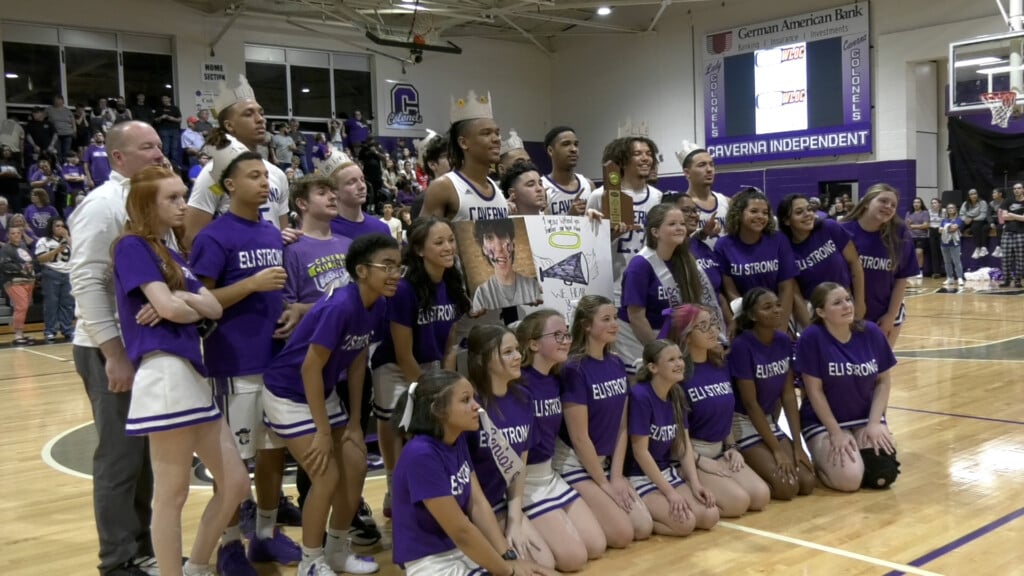SoKY’s Choice: Bowling Green International Festival celebrates culture, food, and community
BOWLING GREEN, Ky. (WNKY) – The sound of drums, the smell of sizzling food, and the sight of colorful flags filled Circus Square Park this weekend as the Bowling Green International Festival brought thousands downtown to celebrate culture from around the globe.
Organizers called it one of the largest turnouts in recent years, thanks in part to clear skies and comfortable fall weather. The festival featured three stages of music and dance, rows of vendors, and nonprofit booths highlighting Bowling Green’s diverse communities.
Heather Gorham, owner of Family Traditions, said the event gives people a chance to show up as their true selves.
“I think it’s a great place for people just to be their authentic self,” Gorham said. “They can come and be whatever religion or from whatever culture, just celebrating life as they know it.”
For attendees, the mix of food, music, and fellowship created a vibrant snapshot of a city known for its growing diversity. Aziz Umarov, who moved to Bowling Green from Turkey, said it’s a tradition he looks forward to every year.
“It means everybody can come somewhere nice to see all these different cultures,” Umarov said. “I love coming and trying all the food.”
The aromas drifting across the park were only part of the experience. Ting-Hui Lee, who leads the WKU Chinese Music Club, said international music brings people together in ways that words cannot.
“Every time I show instruments here, people are always interested,” Lee said. “Even if we don’t speak the same language, the music communicates.”
Performances ranged from traditional Asian string instruments to African drumming, offering crowds a chance to see and hear cultures they may never have encountered before. For many families, it was also a teaching moment for children.
Rory Fundora, president of Project Yesu, said her organization used the event to connect Bowling Green residents with her nonprofit’s work in Uganda.
“It’s been great to be able to share Uganda with people, answer questions, and share stories,” Fundora said.
Alongside the entertainment, nonprofits focused on building bridges within the community. Faith Mkanta, representing Care USTZ, said food played a key role in connecting cultures.
“We just like to bring communities together,” Mkanta said. “Moms cooking with one another because they don’t have many friends or people they can depend on in the community.”
That message resonated with Roy Phillips, who works with the Bowling Green Refugee Department. He said the event shows residents what diversity truly looks like in practice.
“It brings out everybody,” Phillips said. “Everybody gets to see people of other countries and experience their food and what they like.”
Vendors also saw the festival as an opportunity to share a piece of home. Esther Rivas, whose family has been involved for years, said every dish served helps break down barriers.
“We want everyone to feel welcome,” Rivas said. “Just by sharing our food and language, it helps us all become one as a community.”
For attendees like Ashok, who has lived in Bowling Green for six years, the event is a highlight of the year.
“It’s good for all the people to showcase their food and their values,” Ashok said. “It’s a good platform for everyone.”
The festival has grown alongside the city’s international population. Bowling Green is home to thousands of immigrants and refugees, including families from Bosnia, Myanmar, the Democratic Republic of Congo, and Afghanistan.
While food may have been the main draw, the event offered a deeper lesson, that music, stories, and shared traditions can bridge divides. Many festivalgoers said they left with not only full stomachs but also new perspectives.
By nightfall, as vendors packed up and the last notes of music faded, organizers said they were already looking ahead to next year. The annual gathering, they added, has become more than just a festival, it’s a celebration of what Bowling Green is today.




